At Novo Nordisk, we are acting on our purpose to defeat diabetes and other serious chronic diseases by expanding our commitment in areas of high unmet need, including Alzheimer’s disease. This is a disease that impacts millions of people worldwide, including the estimated 6.7 million Americans living with Alzheimer's dementia.1 We welcome you to learn more about its causes, symptoms, and how to support a loved one living with Alzheimer’s disease, while also discovering our research and development efforts to help address the unmet medical need in this disease area.
Alzheimer’s disease is a brain disorder that slowly destroys a person’s memory, thinking skills, and other cognitive functions.1,2 It is a progressive disease, which means that it worsens over time, eventually leaving those affected with the disease unable to carry out simple daily activities.1
These changes in memory and cognitive functions are due to nerve cells (called neurons) in the brain becoming damaged and destroyed.1,2 A healthy brain contains tens of billions of neurons3 whose main function is to transmit signals between different parts of the brain, and to and from the brain and the muscles and organs of the body.4 In Alzheimer’s disease, damage becomes widespread as nerve cells stop functioning and die, thereby disrupting the communication between neurons.1
Initially, cognitive decline that leads to symptoms such as memory loss is often mistaken for a normal sign of aging.1 Therefore, it is important to discuss with your doctor any early signs and symptoms that you suspect could be unrelated to normal aging and due to early Alzheimer’s disease.
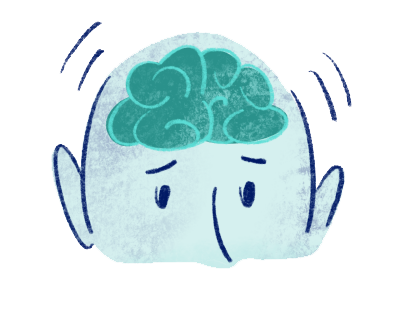
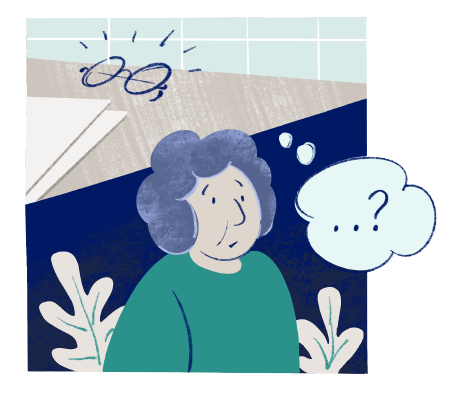
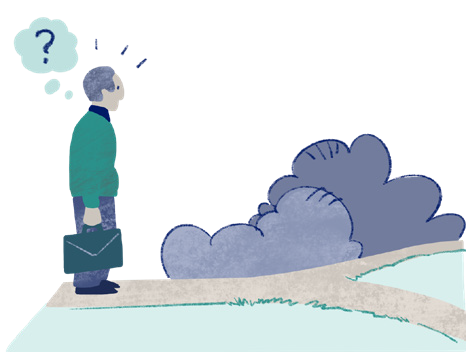
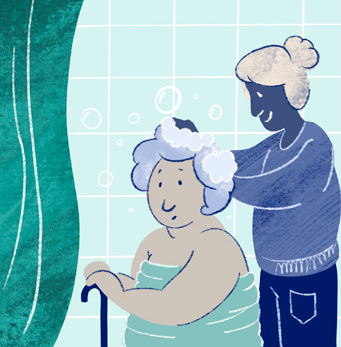
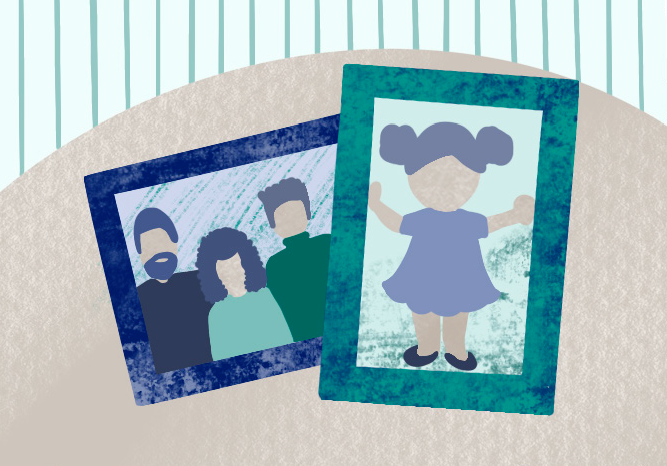
Though you may hear these terms being used together, Alzheimer’s disease and dementia are not the same thing.
Dementia is not a specific disease, but a general term describing a group of symptoms that over time will impact memory, language, problem-solving, and other thinking abilities.1,6
While dementia has many causes, Alzheimer’s disease is the most common cause of dementia, accounting for 60%-80% of dementia causes globally.1 Someone with Alzheimer’s disease can show symptoms of dementia, and this is known as Alzheimer’s dementia. However, not everyone with dementia has Alzheimer’s disease.1
Symptoms of Alzheimer’s disease can progress slowly over several years, and they are sometimes mistaken for normal signs of aging.1 As a consequence, some people in the early stages of disease may not realize that they are experiencing symptoms of early Alzheimer’s disease and therefore delay seeing a doctor.1
So, what are some common early symptoms of Alzheimer’s disease? 1,7,8
- Forgetting recent conversations or events
- Misplacing items
- Forgetting the names of places and objects
- Trouble thinking of the right word
- Asking questions repetitively
- Showing poor judgment or difficulty in making decisions
- Mood changes, such as increasing anxiety or agitation
It can be hard to tell apart normal aging and early symptoms of Alzheimer’s disease. If you or someone you know are concerned about experiencing symptoms of Alzheimer’s disease, talk to your doctor.
There is currently no cure for Alzheimer’s disease, though today’s therapies can still help treat symptoms and improve quality of life for those living with the disease.1,2
At Novo Nordisk, we aspire to address the unmet medical need for those living with Alzheimer's disease and their loved ones.
1. 2023 Alzheimer’s disease facts and figures. Alzheimers Dement. 2023;19(4):1598-1695.
2. Hung SY, Fu WM. Drug candidates in clinical trials for Alzheimer’s disease. J Biomed Sci. 2017;24(1):47.
3. Azevedo FAC, Carvalho LRB, Grinberg LT, et al. Equal numbers of neuronal and nonneuronal cells make the human brain an isometrically scaled-up primate brain. J Comp Neurol. 2009;513(5):532-541.
4. National Institute on Aging. National Institutes of Health. What Happens to the Brain in Alzheimer's Disease? Accessed May 8, 2024. https://www.nia.nih.gov/health/alzheimers-causes-and-risk-factors/what-happens-brain-alzheimers-disease#:~:text=Alzheimer's%20disrupts%20processes%20vital%20to,the%20entorhinal%20cortex%20and%20hippocampus
5. Aisen PS, Cummings J, Jack CR Jr, et al. On the path to 2025: understanding the Alzheimer's disease continuum. Alzheimers Res Ther. 2017;9(1):60.
6. Alzheimer’s Association. What is dementia? Accessed October 27, 2023. https://alz.org/alzheimers-dementia/what-is-dementia
7. National Institute on Aging. National Institutes of Health. What are the signs of Alzheimer's disease? Accessed October 27, 2023. https://www.nia.nih.gov/health/what-are-signs-alzheimers-disease
8. Alzheimer’s Association. 10 early signs and symptoms of Alzheimer's and dementia. Accessed October 27, 2023. https://www.alz.org/alzheimers-dementia/10_signs